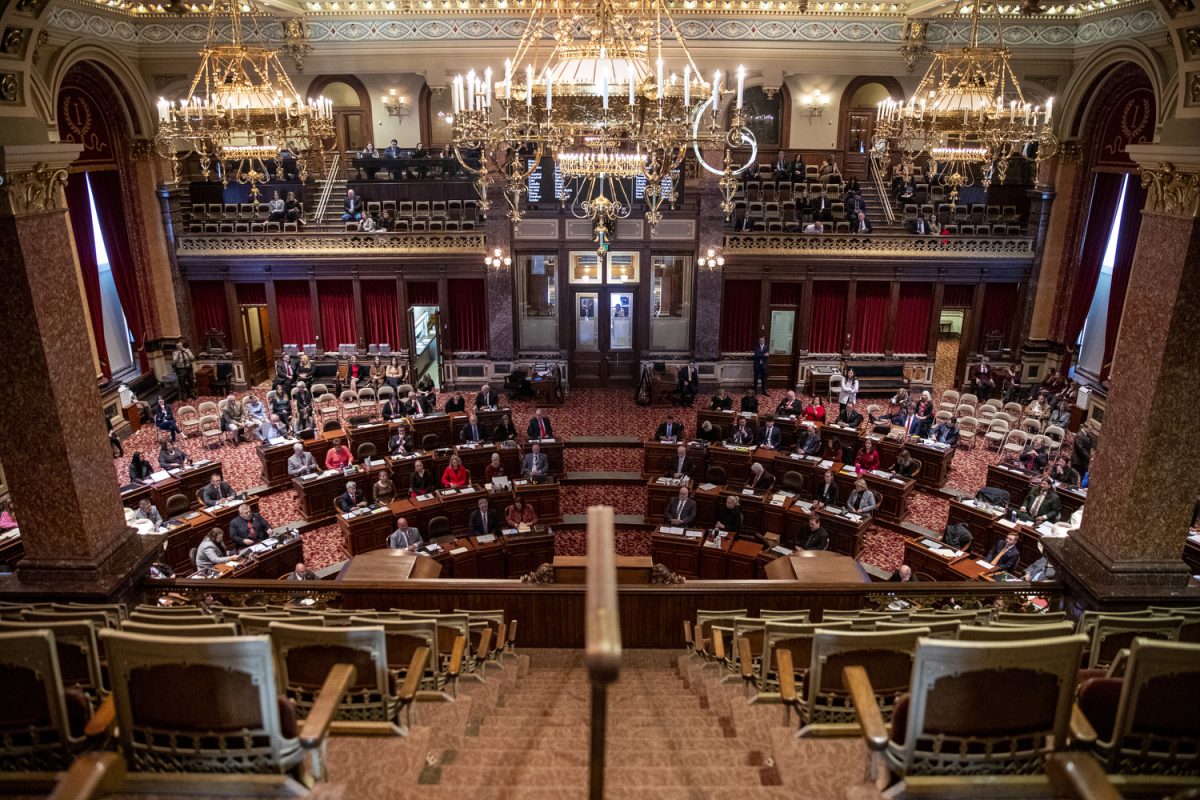Sometimes, the best mascot is one people laugh at.
The Iowa Senate has introduced a bill that would prohibit public schools from using mascots representing disabilities. Senate File 382 seeks to ban “discriminatory mascots,” including those referencing disabilities, under the threat of cutting state tuition aid.
It’s not just public schools. Private colleges would also be impacted. This is an excellent idea, because some mascots like Estherville Lincoln Central’s “Midgets” are easily considered discriminatory.
Not only is the term “midget” derogatory for anyone with dwarfism, but mascots typically get made fun of and face ridicule. A mascot with a disability would be sending the wrong message.
Democratic Senator Molly Donahue conceived the bill, stating, “If a student were to be enrolled in this school with dwarfism, whether they like the mascot or not, this puts undue emotional labor on that student and their family to have to constantly educate and express, like when you chant the mascot’s name, that you don’t call me that name.”
Having a school mascot that features a disability is insensitive because it can promote the illusion that it’s not a person but an object. Something that isn’t tangible, which can easily be made fun of, can then create a set of falling dominoes that leads to students with disabilities being viewed as less than human by their peers.
A mascot is seen as a symbol, not a person. The best way to have a mascot is if it represents something that isn’t a person and, therefore, would not be subject to ridicule. Mascots inspire people and promote an organization’s patriotism, but a mascot representing a person with a disability blurs the lines between celebration and exploitation.
It isn’t just Iowa that is striving for this change. Illinois’s House Bill 3527 is putting forth the same change. Gary Arnold, former president of Little People of America organization, stated he visited the Metro East Freeburg Community High School in Illinois three times to request the school to change the mascot, but no such change was made.
According to him, the term “dwarf” has real impacts on the lives of people with dwarfism.
“We memorialize poets and authors based upon their words. We quote leaders whose words inspire us, and the actions of tyrants are often foreshadowed by the words that they speak. Words matter,” Arnold said. “And they affect people with dwarfism, their families, and their communities wherever they live.”
If passed in Iowa, the new law would mandate every “discriminatory” mascot be replaced by 2027. The schools would receive additional funding to cover the costs of a rebrand, uniforms, costumes, and any other items that represent it. Until then, any material of a banned mascot could still be used until 2027.
Though there may be some advocates for retaining the status quo, it’s important to understand that people with any type of disability are people, too. Even if the intent isn’t discriminatory, there are better ways to represent people with disabilities without having to give a derogatory term to a mascot whose sole goal is to promote an organization and be ridiculed by the opposition.
Even if the bill does not pass, this issue will not go away anytime soon. It’s better to get it over with now and to avoid defamatory language or representation.



